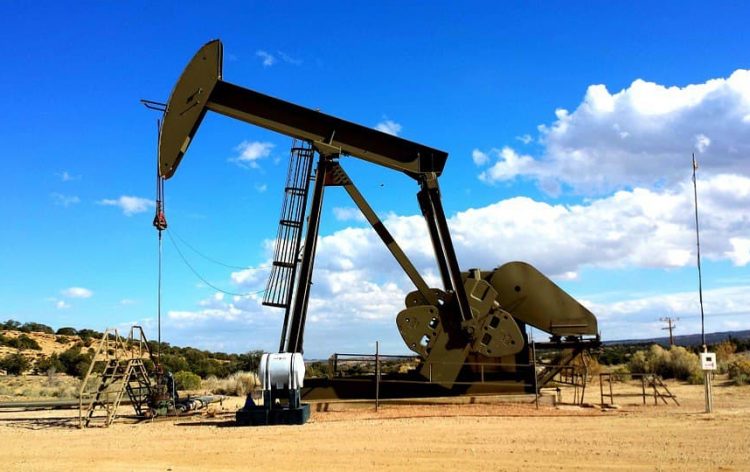Why Are Oil Prices At A Record High For 2021

The year 2020-21 was one of the most unstable years when talking about international trade oil prices. The overall price changes have impacted the economy and financial market a great deal. Changes in oil prices came about for various reasons, from news updates to policy changes. But the biggest reason for changes in the prices last year was due to the coronavirus pandemic.
By mid-March 2020, the prices of US crude oil reached $19 per barrel, and this kind of fluctuation was experienced not just in the US, but worldwide.
So when the prices of US oil were dramatically swinging and falling, what made it go forward? This article will explore the answer.
Why Are The Trade Oil Prices Rising?
After Covid-19, the world economy is recovering tremendously, and the population is trying to move back to their regular life, leaving the quarantine and isolation period behind. This whole scenario led to a worldwide increase in demand for oil, which resulted in a sharp rise in its prices.
The global oil demand dropped during the pandemic because people were driving and flying less, causing a free fall in oil prices. Additionally, many countries were facing supply restrictions by the OPEC+ grouping nations, leading to an increase in international oil prices.
The whole pandemic caused a huge general slowdown in oil production, which is another reason we see a considerable rise in oil prices. However, the demand is now returning back to the US with the reopening of businesses and fewer Covid-19 cases, and now, people are willing to travel.
The pressure to meet the demand is another reason to notice an increase in oil prices in 2020-21.
3 Reasons For Seeing Record High In Oil Prices In 2020-2021
1. OPEC Decrease Production
OPEC or Organization of Petroleum Exporting Countries controls the entire oil trading entity. The member nations that are more focused on oil production focus on determining oil prices by increasing or reducing its production.
Even though OPEC control has decreased slightly in the past few years, its decisions still impact most policies and further decisions. Whatever decision it takes is closely watched by consumers, government, policymakers, traders, oil companies, hedgers, speculators, and investors.
When the supply disruptions are disturbed or controlled by OPEC due to low production, it leads to a huge shift in oil prices. Even specific scenarios can be severe enough to impact the production of oil, leading to notable changes in its prices. These include the Iranian revolution, Persian Gulf wars, Iraq-Iran war, Asian financial crisis, and other economic crises that took place in the largest oil-producing countries.
So, it is not wrong to say that if OPEC decreases oil production due to any external factor, the price can be impacted every time.
2. Demand Is Rising
There has been a visible increase in industrial production and economic growth, which has boosted the overall demand for oil.
According to the US Energy Information Administration, the overall oil consumption declined in organizations for economic cooperation and development countries. On the other hand, consumption has increased more than 40 per cent in non-OECD countries. This was the data between 2000 and 2010. Here, in countries like China, India, and Saudi Arabia, oil consumption was the largest and ever-growing.
As the US is currently not focused on supplementary production of oil, but the demand is more due to transportation, population growth, industrial demand, and seasonal changes, the prices are also impacted. In short, demand is more, and supply is less, which is leading to an increase in prices.
3. Hurricane Ida
Hurricane Ida hit the country with powerful winds and waves, which have impacted the overall shut down of many oil and gas companies. This resulted in approximately a 90 per cent pause of the oil production in the Gulf of Mexico.
It is important to mention that every two out of three barrels of crude oil pumped from the Gulf of Mexico became unavailable.
The three to five day oil requirement of people could be handled with already available stock, but it is tough to carry such a country through for two to four weeks. It shows that there is very low stock with a disproportionate amount of demand.
Due to this uncertain situation, it is hard to say when the situation and oil production will get back on track. Although many corporations have resumed production, it is even harder to say when it will be able to meet the overall demand.
How Will It Impact The Economy?

Although there are many reasons for change in oil prices, the coronavirus pandemic has impacted it dramatically. We expect the nation to fully recover from the consequences in 2023.
However, nations are trying to come back much quicker than predicted, but the oil production is still not as steady as it should be, leading the oil pricing above $75 per barrel. If the prices of oil remain the same in the future, it will add more to the overall transport and goods costs and impact the economy.
Even the favorability to use a personal vehicle can be impacted. Therefore, it is important for the oil prices to back down slightly in the future to make it more affordable.
Bottom Line
Oil has been ensuring the smooth working of the world’s economy for a long time. Even if we have other alternative energy sources in 2021, imagining life without oil is hard. It is required for three-fourths of the manufacturing processes of the country and makes the transportation sector run smoothly.
It is good that the demand for oil is pushing up a lot after Coronavirus hit, but the oil producers are still pumping less oil. This is impacting the prices of oil and the entire demand-supply cycle. This rise in oil prices is indirectly impacting the working of all sectors of the country.
Hopefully future trends will indicate more positive news for the sector.
Sources:
– https://www.investopedia.com/terms/e/energy-information-admin.asp
– https://www.npr.org/sections/coronavirus-live-updates/2020/04/20/838521862/free-falling-oil-prices-keep-diving-as-demand-disappears
– https://www.npr.org/2020/04/12/831261657/as-demand-for-oil-dries-up-opec-and-allies-agree-to-historic-cuts-in-output
– https://www.macrotrends.net/1369/crude-oil-price-history-chart


























Comments (0 comment(s))